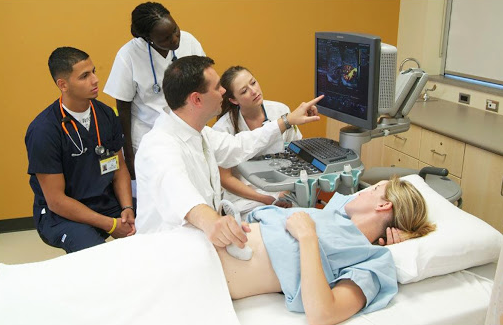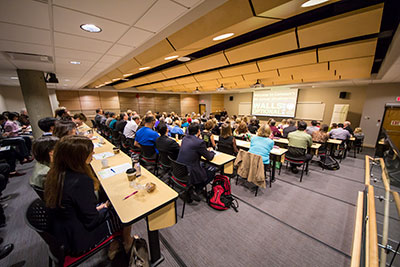Auto Mechanic Courses
If you have always felt a craving for cars and their repair, and you like to spend your free time assembling and disassembling engines, then it's time to think about building a professional career in the automotive industry. You can choose any specialty, whether it is an automotive service technician, a mechanic of heavy trucks, or a specialist in troubleshooting electronic systems of various modern vehicles.
In this article, we will tell you what knowledge and skills you can acquire during training, what are the advantages of the automotive mechanic profession, and reveal the list of responsibilities of the specialists in the field of automotive service.
Automotive Mechanic Basic Job Responsibilities
Thanks to such films as "Ford vs. Ferrari" or "Speedy Racer," each of us has a general idea that an automotive mechanic is a person who repairs vehicles in dirty and oily equipment without breaks and weekends. In theory, this is true. However, for a better understanding, let's analyze the duties of the mechanic in more detail.
Repair any mechanical or electrical systems in the vehicle
A top-end automotive mechanic can put into operation any broken part, whether it's a conventional headlight or complex suspension and steering systems. If a specialist has advanced skills, then he can find a solution in the repair of machines with both automatic and manual transmissions.
Carrying out diagnostic procedures
Every automotive service technician can carry out preventive maintenance. This can be any basic operation, for example, changing oil or fuel, conducting compression tests, or cleaning air conditioning.
Test drive of the vehicles
The car is a very complex mechanism, and before the client gets behind the wheel, the mechanic needs to check the proper work of each component. If, during the test drive, the specialist discovers some problems, e.g., in the ignition systems or steering mechanism, then he will eliminate them by the norms of the vehicle operation.
Interaction with customers and making repair estimates
In any automotive shop, mechanics interact with customers. This helps to find out more detailed information about the car, the issues, and the wishes of the client. An experienced automotive service technician can build a dialogue with the client in such a way that the interaction does not end at the stage of breakdown discussion. In addition, the mechanic's duties include drawing up an estimate for repairs and approving it with the client.
As you can see, the job of an automotive mechanic implies not only the use of practical working knowledge to repair the vehicle. It is also aware of basic mathematical concepts and developed communication skills that will count. To become a top-class specialist in the automotive industry, you need to go through an interesting training path.
Automotive Service Technician Essential Skills
As is the case with any other profession, a highly qualified automotive service technician should have several special competencies that will allow him to complete vehicle repair orders at a good level.
More specifically, we can highlight the following aspects:
- Problem-solving skills. Why do people turn to automotive repair shops? Because when their vehicle breaks down, they don't know which of the many components is out of order. A mechanic, like a professional surgeon, can correctly identify the diagnosis of a breakdown and find its source. After the problem identification, a master applies his practical skills to eliminate it.
- Analytical thinking. When an automotive mechanic repairs a vehicle, he thinks ahead about how a particular component will function. This helps to ensure the safe operation of the car and reduces the risk of breakage.
- Communication skills. Very often, people think that an automotive service technician is a sullen and taciturn person. However, this is nothing more than a stereotype. Modern specialists have excellent speaking skills. They can clearly and concisely convey to the client all the details of the operation and explain how to use the vehicle correctly.
- Time management. Dozens or even hundreds of customers pass through automotive repair shops every day, and to remain competitive, an automotive service technician has to manage time properly. A specialist with exceptional time management will have time to repair a complex suspension system, take delivery of new components to engine systems, consult clients, and clean up the workplace in one day.
- Automotive service is hard manual labor that requires good physical fitness. Most mechanics work in confined spaces, so they have well-developed coordination, dexterity, and physical strength to control hand tools.
All in all, if you will manage to master the complete list of competencies, then you will become a top professional in the automotive industry and later will have the ability to prepare students for this business.
Auto Mechanic Training Benefits
Successful completion of the apprenticeship program in the field of automotive service will bring you not only a certificate but also provide an in-depth understanding of all processes and nuances of vehicle repair.
Let's take a closer look at the benefits of taking an apprenticeship course:
- Hands-on training on the use of specialized tools. During the repair of vehicles, mechanics operate instruments that they learn to use only from highly qualified teachers. They also adopt the most preferred techniques and hidden chips that increase the productivity of repair operations.
- In-depth theoretical knowledge. By analogy with in-school training, in the course of mastering the program, you will have the opportunity to learn detailed information about all components of the vehicle (engines, electrical systems, manual & automatic transmissions, brakes, and suspension systems).
- Competitiveness in the labor market. The automotive industry is overflowing with offers, and therefore you need to have better competencies to stand out from the crowd of other students. Experienced employers can easily identify mechanics with special training, and you can become a true specialist if you complete the apprenticeship program.
- Career start. The program start date will be the first significant step in building a successful career. You will no longer feel a lack of experience because during the training course, you will learn everything and this will give you great confidence.
On the whole, if you have a deep understanding of automobile repair theory, as well as will develop skills during the hands-on training sessions and prove this with the certificate, then all the doors will open in front of you.
Automotive Mechanic Professional Prospects
After completing the apprenticeship program, different entry-level positions will open up in front of you, such as an employee of an automotive shop or a specialist in repairing ordinary cars, for example, light trucks or passenger vehicles. As you gain experience and master new tools, you can go into the automotive service technician trade industry and work in car dealerships as a leading manager. The automotive sector is constantly developing and occupies a big part of the national economy, so your employment status will always be in demand.
Frequently Asked Questions - FAQ
Which people are most eligible for training in automotive service programs?
If you have loved cars all your life since your school days, you know all the components of the transfer case, and you are aware of what procedures the repair process consists of, then you have every chance to finish the program with great success. Of course, you will need specialized skills. However, you can develop them during training.
How quickly can I master an automotive service technician course?
It all depends on the starting positions. If you can distinguish an automotive automobile from a manual transmission vehicle, know why it is necessary to carry out a technical inspection of fuel systems, and can name elements of a mechanic's equipment, then you will pass the basic part very quickly. If not, then the learning process will be a little longer but no less interesting.
What will the completion of the training program give me?
A person with an official certificate can legally repair cars, work in repair shops, and participate in the procedures of development and diagnostics of new cars. He can also provide any service, from cosmetic work on straightening the bumper to replacing complex electrical and steering components, as well as teach other students.



















